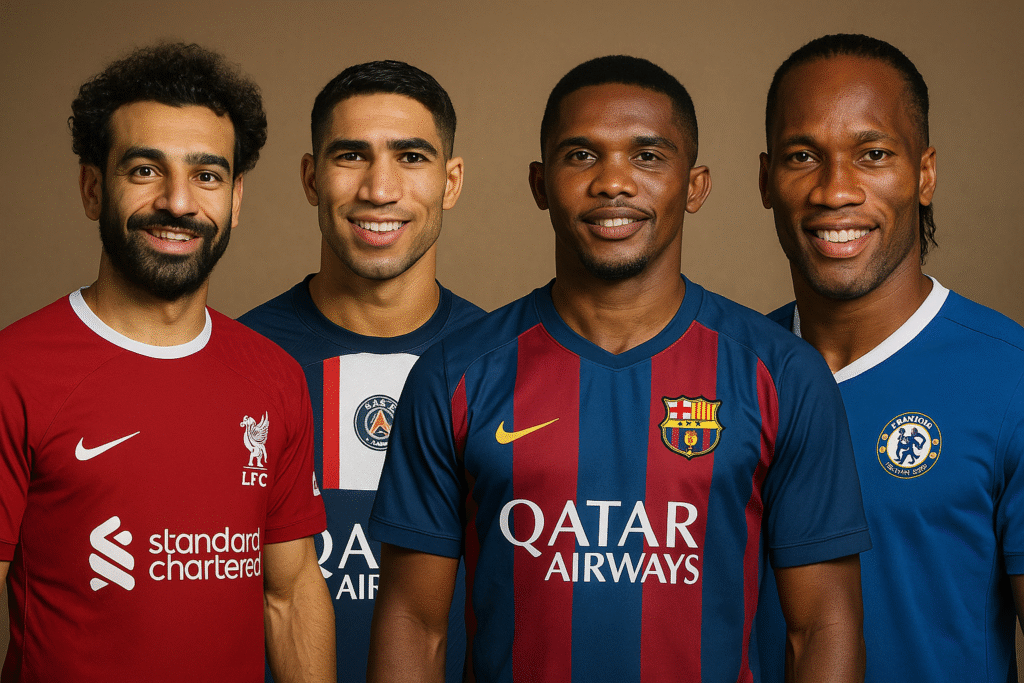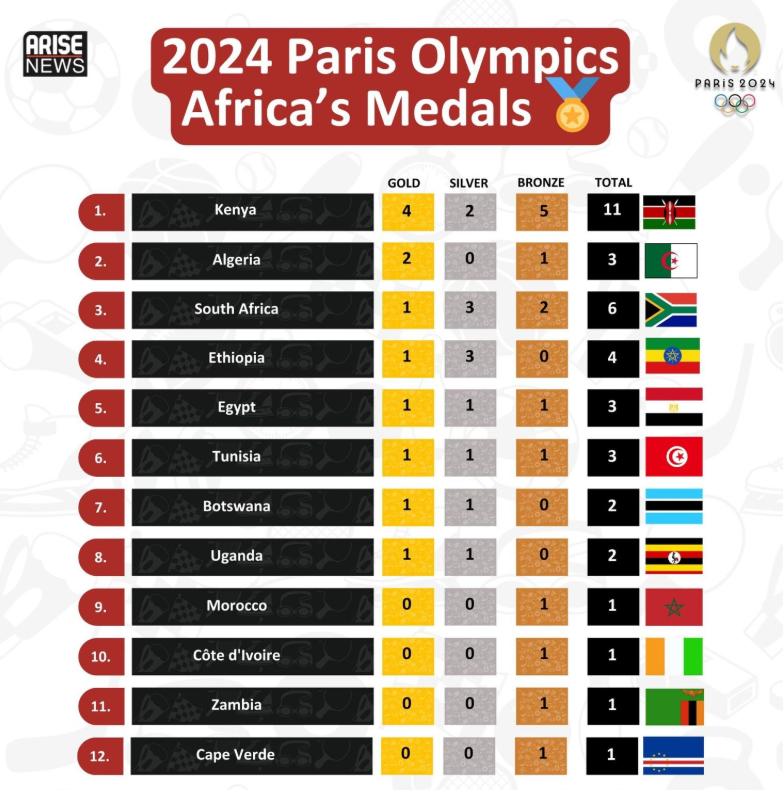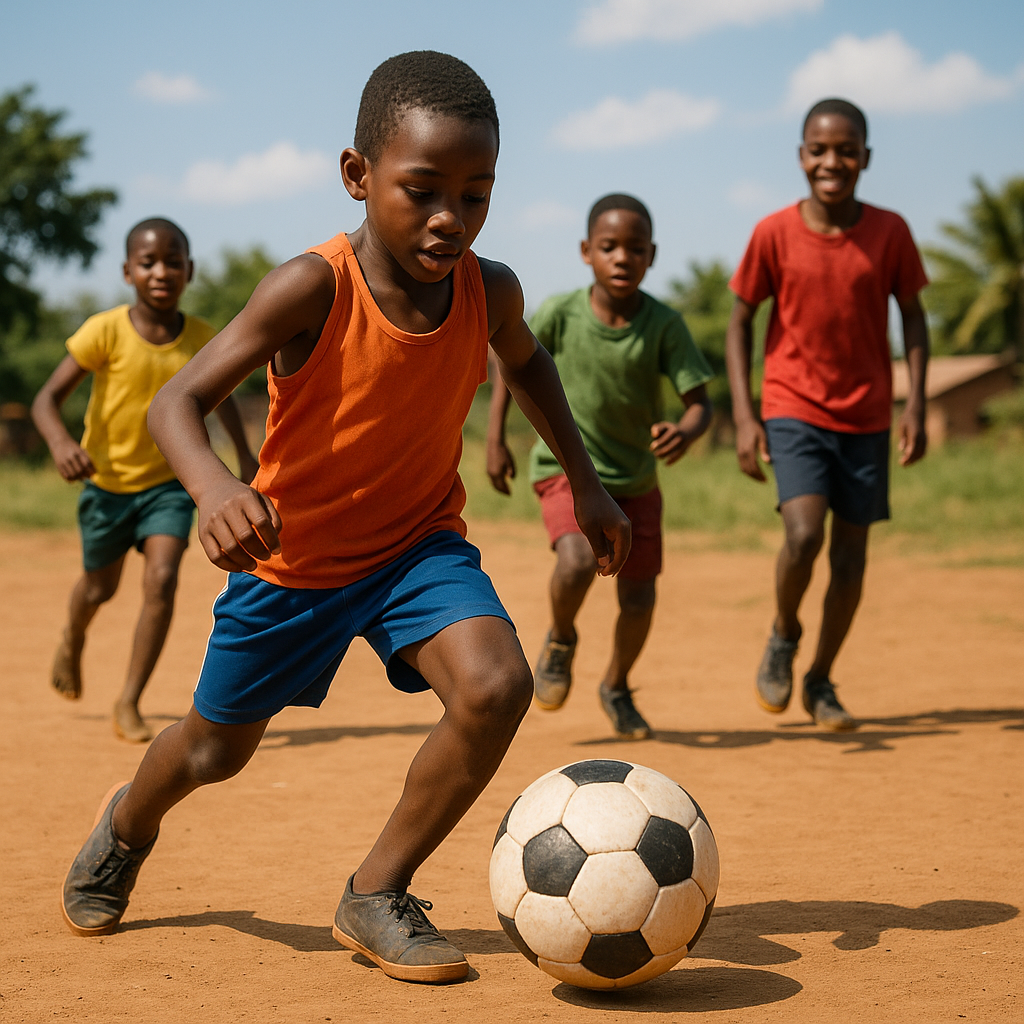Africa’s popular sports in Africa reflect its diversity and passion. Football (soccer) is by far the most widely followed game on the continent, enjoyed by fans of all agesen.wikipedia.org. Many African football stars have become international icons – for example, Egypt’s Mohamed Salah and Senegal’s Sadio Mané are household names in world footballbbc.combbc.com. At the same time, track-and-field athletics – especially distance running – is a major area of African excellence. Nations like Kenya and Ethiopia consistently produce Olympic and world champions in events from 1,500 metres up to the marathonallafrica.com. Basketball, rugby, boxing, and even motorsports also have followings in parts of Africa, but football and athletics tend to dominate the headlines. In this article we explore football in Nigeria, Egypt, and Senegal, the continent’s track and field in Kenya and Ethiopia achievements, youth sports development in Africa, and the cultural importance of sports to African societies.
Football in Nigeria, Egypt, and Senegal
Football is a near-religion in many African countries. Nigeria’s national team, the Super Eagles, has won the Africa Cup of Nations (AFCON) three times (1980, 1994, 2013)theguardian.com and regularly appears at the FIFA World Cup. Nigeria has produced many famous African football stars. For instance, striker Victor Osimhen was named the 2023 African Footballer of the Year; he has scored 23 goals in 39 appearances for Nigeriabbc.com. Nigeria’s domestic league and youth clubs (e.g. the Nigerian Youth Football Association) nurture talent, and Nigerian players like John Obi Mikel, Jay-Jay Okocha and the Okoye brothers have starred in top European leagues.

Egypt is another football powerhouse. The Pharaohs hold a record seven AFCON titlesbbc.com, and legendary clubs like Al Ahly and Zamalek have won numerous African club trophies. In recent years Egypt’s most famous player has been Mohamed Salah, who leads Liverpool FC’s attack. As of 2022 Salah had scored over 150 goals for Liverpool, making him ninth on the club’s all-time scoring listbbc.com. Salah has twice been voted BBC African Footballer of the Year. His international success has shone a spotlight on Egyptian football around the world.
Senegal’s football team has been on the rise. In 2021 they won their first-ever Africa Cup of Nations trophy. Sadio Mané – a pacey winger who played for Liverpool and now Bayern Munich – scored the winning goal in the shootout that beat Egypt in the finalbbc.com. Mané was also named African Footballer of the Year in 2022bbc.com. Senegal regularly qualifies for the World Cup and has other stars like goalkeeper Édouard Mendy (Chelsea, then Al-Ahli). (A quick note for readers: in soccer a penalty kick is a shot taken from 12 yards (11 metres) with only the goalkeeper to beat, awarded after certain fouls. The goalkeeper is the player in front of the goal who can use his hands in the penalty area to make saves.)
In all these countries, football is followed with great enthusiasm. Nigerian, Egyptian and Senegalese fans fill stadiums and watch on TV in multitudes. They celebrate goals like national heroes, and big wins are widely celebrated. Media in these nations give extensive coverage to soccer, and major matches (for example Nigeria vs. Ghana or Senegal vs. Tunisia) unite people across regions.
You can read about How Football Conquered the World
Track & Field Dominance
Athletics (track and field) is another arena where Africa shines globally. East African countries dominate long-distance running. For many years Kenya and Ethiopia have been the world’s fastest nations in events like the 5,000 metres, 10,000 metres and marathonallafrica.com. At world championships and Olympics, Kenyan and Ethiopian runners often top the medal tables among African nations. For example, at the 2022 World Athletics Championships in Oregon, Ethiopia finished 2nd in the medal standings and Kenya 4thbbc.com, ahead of more populous countries. On road races, Kenyan marathon legend Eliud Kipchoge has won two Olympic golds (2016, 2021) and twice broken the official marathon world record (he ran 2:01:09 in Berlin 2022). He is also the first person ever to run a 42.2 km marathon distance in under two hours (in a special event). Another superstar is Faith Kipyegon of Kenya, who holds the women’s world records in both 1500m and 5000mbbc.com. Ethiopians like Kenenisa Bekele, Haile Gebrselassie, and Tirunesh Dibaba are also legendary for distance running.

At the Olympics, African athletes have long excelled in distance races. As the chart above (from official IOC data) shows, Kenya led all African nations at Paris 2024 with 11 total medals, including 4 gold – all won in athletics eventsafricanews.com. South Africa and Ethiopia followed with 6 and 4 medals respectively. (By comparison, in 2016 African countries won 37 Olympic medals combined.) Much of Africa’s medal haul comes from track and field: marathons, middle-distance races, and the steeplechase. Even some shorter distances see African champions (for example, Uganda’s Joshua Cheptegei in the 5000m and 10,000m). In field events, stars like France’s World Champion Renaud Lavillenie have African heritage (through his Mauritian father), and South Africa’s Neil de Silva was an Olympic pole vault champion.
In summary, athletics records and podiums in Africa are often in the hands of East Africans. A recent study noted that “middle- and long-distance runners from Ethiopia and Kenya hold over 90% of all-time world records” in those eventsbbc.com. These achievements inspire many young Africans to take up running, as rural high-altitude areas in Kenya and Ethiopia become legendary training grounds for world-beating athletes.
Youth Development
Many African countries are now investing in youth sports development in Africa to find the next generation of champions. National associations, clubs and international bodies have launched programs and leagues for young athletes. For example, FIFA’s Forward Programme funded the creation of national youth football leagues in Senegal (U-15, U-17 and U-20 for boys and girls) starting in 2020inside.fifa.cominside.fifa.com. These leagues run year-round across Senegal’s regions, giving thousands of children regular competition and exposure to scouts from big clubs. As one Senegalese coach said, the initiative is “a real opportunity… to discover other football cultures and to gain experience”inside.fifa.com. Young players like Mané, Idrissa Gueye and Ismaïla Sarr had similar dreams growing up; programs like Senegal’s now help turn those dreams into realityinside.fifa.com.

In West Africa, private academies also play a big role. A prime example is Ghana’s Right to Dream Academy, which scouts talented children (often from age 10) and combines football training with schooling. Since its founding, Right to Dream has produced 20 players who went on to represent Ghana at senior levelbbc.com. The academy even bought a Danish club (FC Nordsjælland) to create a clear path for its graduates to Europebbc.combbc.com. Other academies in Nigeria, Ivory Coast, South Africa and elsewhere similarly groom young players. At youth level, Africa also benefits from international events: the CAF U-17 and U-20 Cup of Nations serve as qualifiers for FIFA’s World Youth Cups, exposing young talents to global competition.
However, funding for youth sports remains a challenge in many countries. A BBC analysis notes that African Olympic teams had far smaller budgets than wealthier nationsbbc.com. Nigeria’s national badminton captain Olajide Opeyori has said bluntly that “if the government does not take athletes seriously, the private sector will not either”bbc.com. For this reason, many youth programs rely on a mix of government support, NGO initiatives and foreign partnerships. Grassroots festivals, school sports days and community clubs all contribute to development as well. Overall, while Africa has vast potential, it often lags behind in facilities and coaching resources compared to other continents. Still, the rising stars from African youth leagues show the impact when investment and passion come together.
Cultural Importance of Sports in African Societies
Sports are woven into the social and cultural fabric of African lifeallafrica.comallafrica.com. They entertain communities, build identity, and sometimes even serve diplomatic purposes. In some cases, attending a soccer match or marathon is a communal event: friends and families gather in town squares or watch on TV together. Anecdotally, in countries like Nigeria and Ghana, people often say “football is like a religion”, with local heroes revered akin to cultural icons. African sports history also intersects with politics: for example, after decades of apartheid, South Africa’s readmission to international rugby and soccer in the 1990s was seen as a symbol of unity and reconciliation. Even outside the colonial sports framework, traditional games remain alive – for instance, Nigeria’s Dambe (a form of boxing) and Angola’s Engolo combat dance are still practiced and celebrated as part of cultural heritageallafrica.com.
In modern times, success on the world stage brings national pride. When Ethiopia’s Abebe Bikila won Olympic marathon gold barefoot in 1960, newspapers around Africa heralded it as a milestone of independence and excellenceallafrica.com. Similarly, current champions like Kenyan marathoner Eliud Kipchoge or South African Paralympic hero Oscar Pistorius are national icons. A recent analysis notes that African countries like Ghana, Nigeria and Cameroon have “devoted football fandoms” – entire nations passionately following their teamsallafrica.com. These fan cultures often cross social lines. In Egypt, for example, club football is so popular that cities come to a standstill when Al Ahly or Zamalek play. National teams and athletes give people a shared sense of identity and joy.
Finally, sports can foster community values. Participating in team sports teaches teamwork, discipline and leadership. Many schools and youth clubs across Africa promote sports for these lessons as much as for competition. While challenges like funding and facilities remain, the cultural importance of sports in African societies is undeniable. They provide a stage for talent and unity alike – a theme that stretches from local dusty fields to the Olympics’ podium.
You can also read about History of Sports
Sources: Contemporary reports from BBC Sport, Reuters, FIFA and other outlets were used to compile this overviewtheguardian.combbc.combbc.combbc.combbc.combbc.cominside.fifa.comallafrica.comallafrica.comafricanews.com. These include analyses of African sports trends and profiles of major athletes and competitions.
